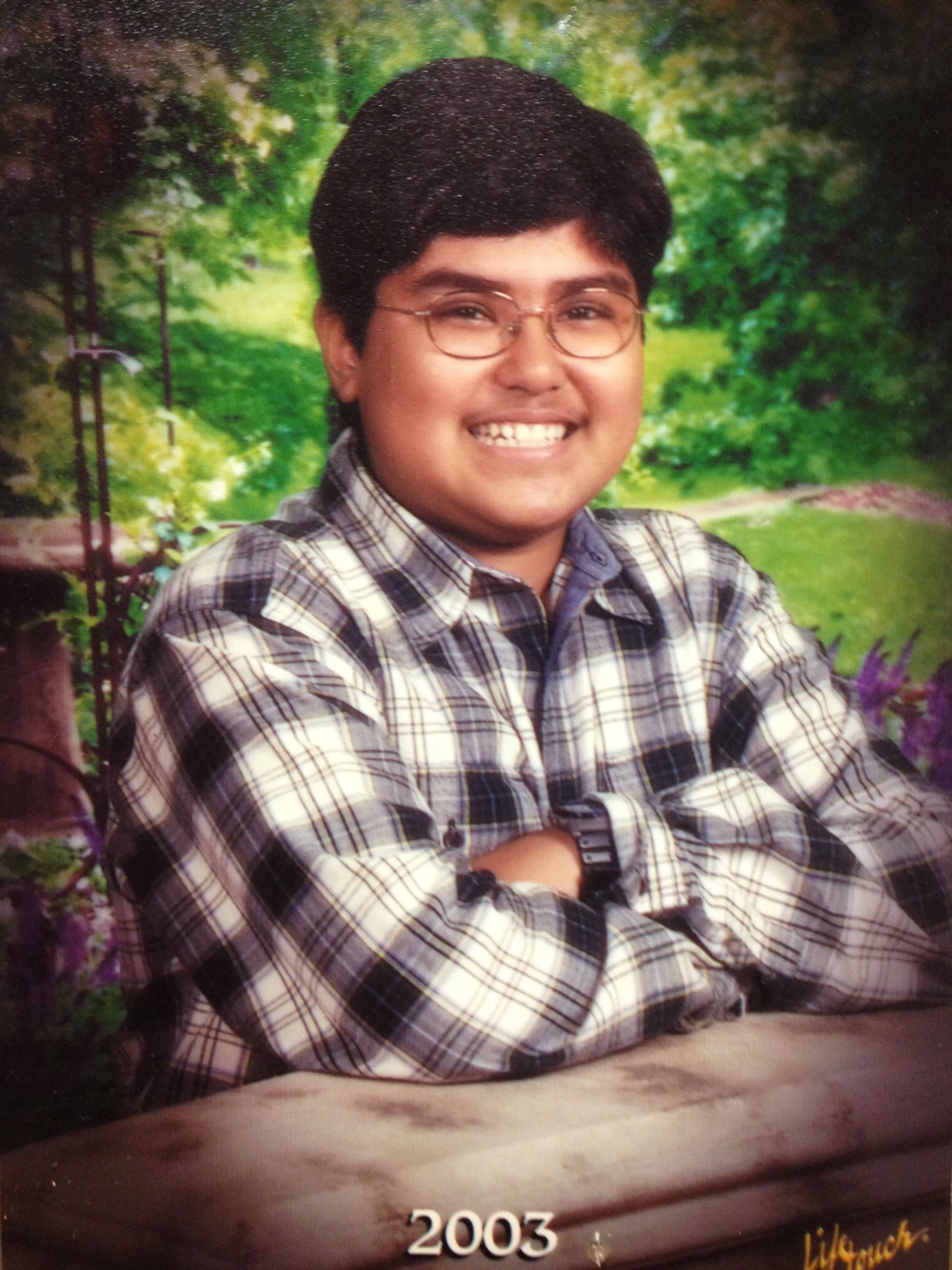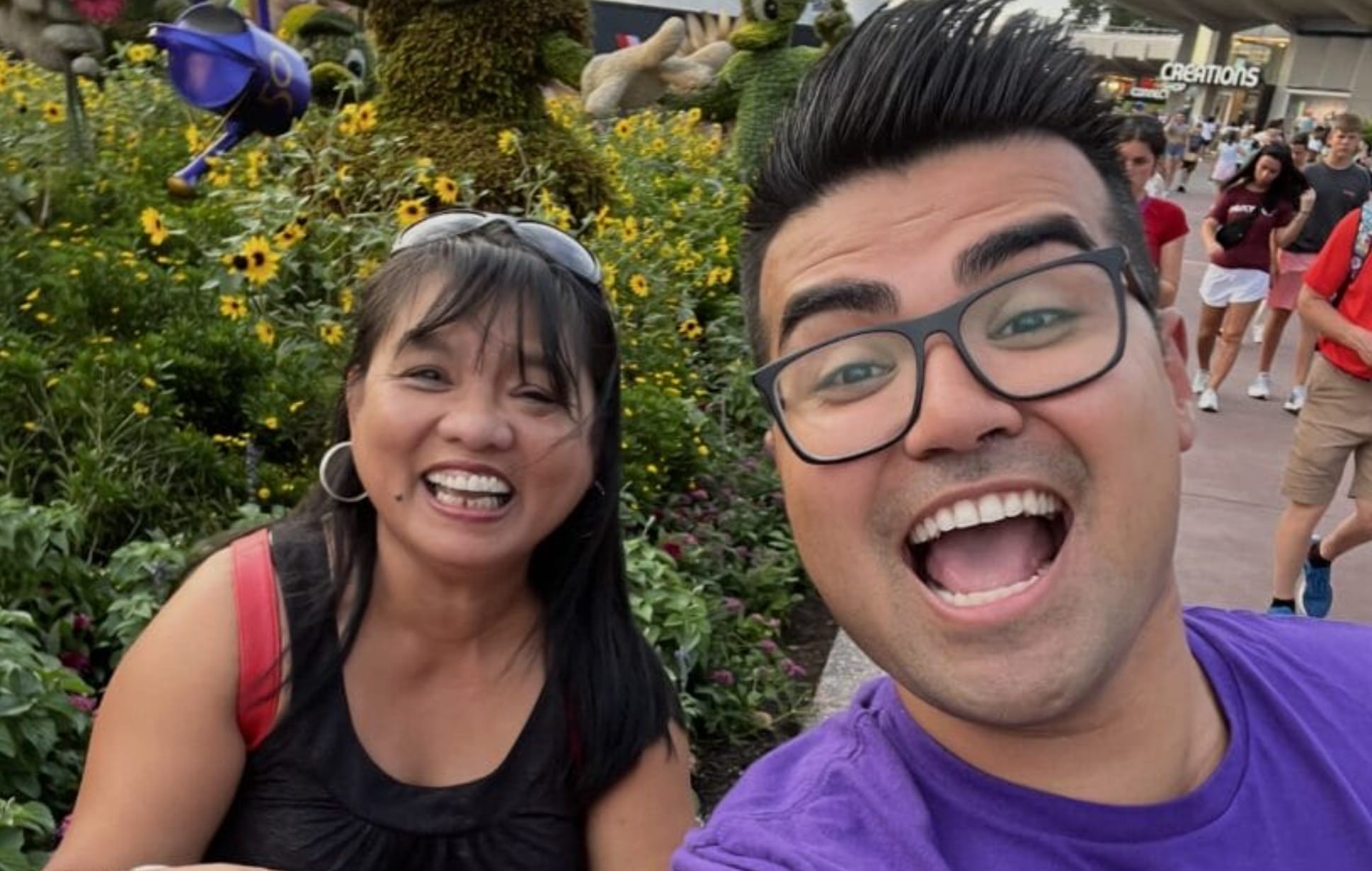
By Tony Morrison
This Filipino-American History Month, I’m reflecting not just on who I am, but who I’ve become.
You see, who we are is a potent, yet precise mix of where we come from, and how we’ve responded to all that life has thrown at us.
Early in my life, I recognized I didn’t look like any of the other kids in class, but I maintained the status quo by fitting in and participating with what all the others did, said, and watched. Later in life, it would be my queerness and eventually my HIV diagnosis that would permanently upend how I show up, yes, for others, but most importantly, for myself.
Reconciling and recentering who I am has been my entire story of becoming, from silence as survival to visibility as liberation.

I still remember the first time I realized how far I’d drifted from my culture.
Muted, one could say.
It was middle school, during a geography class. We were asked to share something from our heritage: food, customs, traditions. When I said I was half-Filipino, some of my classmates lit up. They started talking excitedly about the famed dishes: pancit and chicken adobo. Me? I froze. I had no idea what they were talking about.
This was the first time I remember understanding that the distance between me and where I came from wasn’t an accident; it had been built on purpose.
After my birth father passed away, my mom and I emigrated from the Philippines to the United States of America. I was very young. My mom, as moms do, wanted to make sure my future was bright, that I would be welcomed in any room, and to stay out of trouble by fitting into the mold. She wanted safety for me – the kind she didn’t have when she first arrived in this country. And I know she believed that blending in was the price of protection.
And so, I learned to blend in.
I learned the rhythms and expectations of American life.
I watched how other kids spoke, dressed, and joked, and I adapted quickly.
I learned that the less I brought up my differences, the more I was accepted.
Assimilation became its own language; It was one I spoke fluently.
But what I didn’t realize back then was that assimilation, for all its comfort, can be a kind of erasure.
For years, I wore “belonging” like armor. I had built an identity that looked perfectly acceptable on the outside, but in reality and hindsight, left me disconnected from the inside. It wasn’t until much later that I began to meet myself for real.
As I’ve written about before, I was diagnosed with HIV just months after moving to New York City in my 20’s and officially came out as a bright-eyed, optimistic twink, ready to take on the big city. For years, I convinced myself that silence would protect me – that if no one knew, I could keep control. But shame, my friends, is never protective; it’s corrosive.
When I finally found the courage to share my story publicly, everything changed.
I realized that visibility isn’t about attention, it’s about survival. Speaking openly about my HIV status didn’t just lift a weight off my shoulders; it shattered the false narratives I had built around who I was allowed to be.
That decision – to face myself fully – wasn’t easy.
It required the same kind of bravery my mother had shown when she crossed an ocean for a better life. Only this time, the ocean was inside me: a vast distance between who I thought I had to be and who I actually was.
In the years since, I’ve learned that the courage to be visible isn’t a single act, it’s a daily practice. My HIV diagnosis, which is now the most managed thing in my life, taught me that vulnerability is power, that authenticity builds bridges, and that the parts of ourselves we once tried to hide can – and must – become our greatest teachers.
It was through that act of honesty that I began to unlearn the silence I’d been raised to perfect. HIV forced me to confront every part of myself – the fear, the pride, the history – and in doing so, it reconnected me to all the identities I had once muted. It showed me that my story, like so many others, doesn’t fit neatly into one box.
Somewhere along this journey, I started to see myself again in other people.

I’ll never forget the first time I watched RuPaul’s Drag Race and my eyes locked on to Manila Luzon on my screen – stunning, witty, unmistakably Filipina. Her debut was in 2009, but I didn’t come across her until years later, after I rewatched the earlier seasons – proof that your impact on others can come many years after any expectation.
I was transfixed.
For the first time, I saw a reflection of my heritage presented with (queer) pride, humor, and glamour.
Representation like that was game-changing.
It reminded me that there’s power in being seen exactly as you are.
It also pushed me to start finding and celebrating community again.
Meeting other Filipinos in New York City who welcomed me so openly was another turning point. They didn’t ask me to prove my roots; they just offered connection and community. And lots of food. It made me realize that belonging was never about performance – it’s about presence.
For Filipino and Asian communities living with or impacted by HIV, I want them to know this: help isn’t on the way – it’s already here. You do not have to suffer in silence. There is no blame to be assigned, and shame is only a weapon used to make us feel small. There are people, services, and communities ready to love you exactly as you are. And these are the same people, services, and communities that need our protection and support right now.
When we see each other, speak to each other, and celebrate each other, we heal.
Today, I live with more joy and freedom than I ever thought possible. I have never felt so much purpose in being the kind of representation I once needed. It’s the kind that reminds others that our stories matter. Because as long as our stories live on, we never die.
This Filipino American Heritage Month, I think about my younger self: the kid who didn’t know a lick about his culture, or what culture even was. He just wanted to fit in. I wish I could tell him that one day he’d find belonging not by erasing parts of himself, but by embracing every single one.
Being Filipino, queer, and living with HIV undetectably today are not separate truths – they are a representation of the same story: one of survival, visibility, and joy too.
I’m proof that when we allow every part of who we are to lead, we unlock the fullness of our unmistakable humanity.
And that, to me, is the heritage we should all be proud to claim and a real history, perhaps a legacy, to celebrate.












